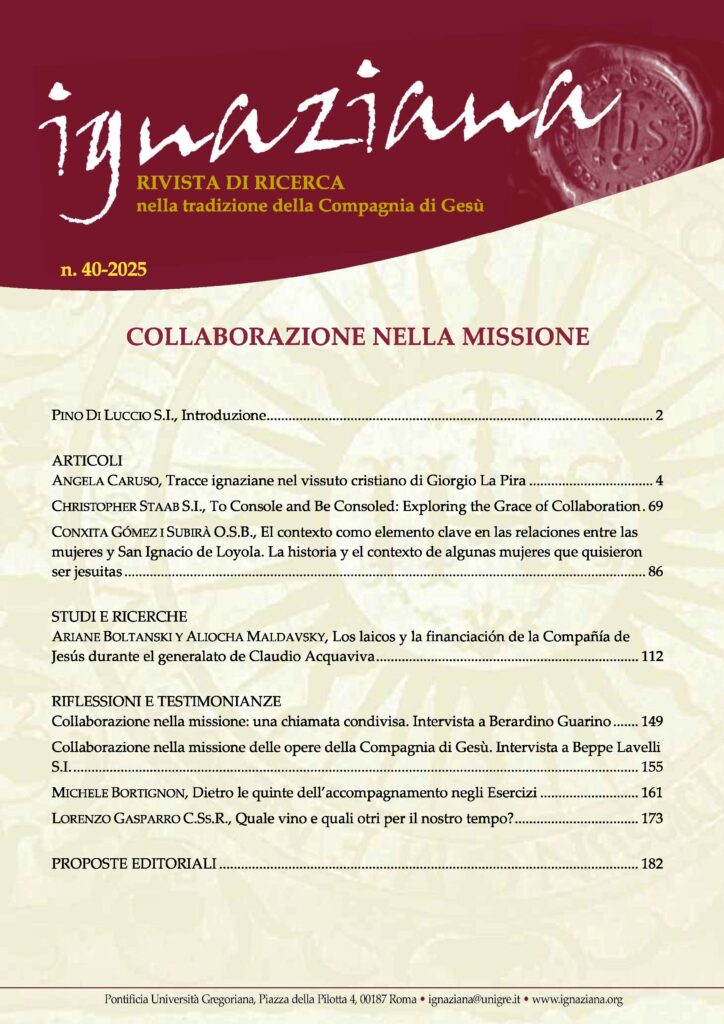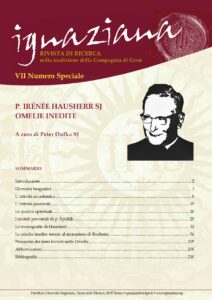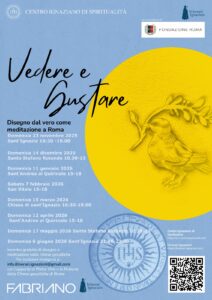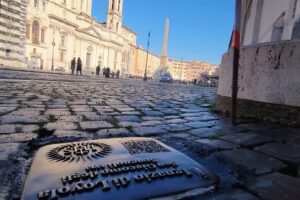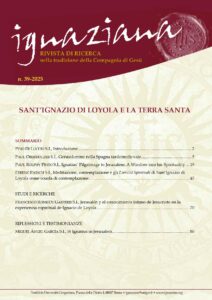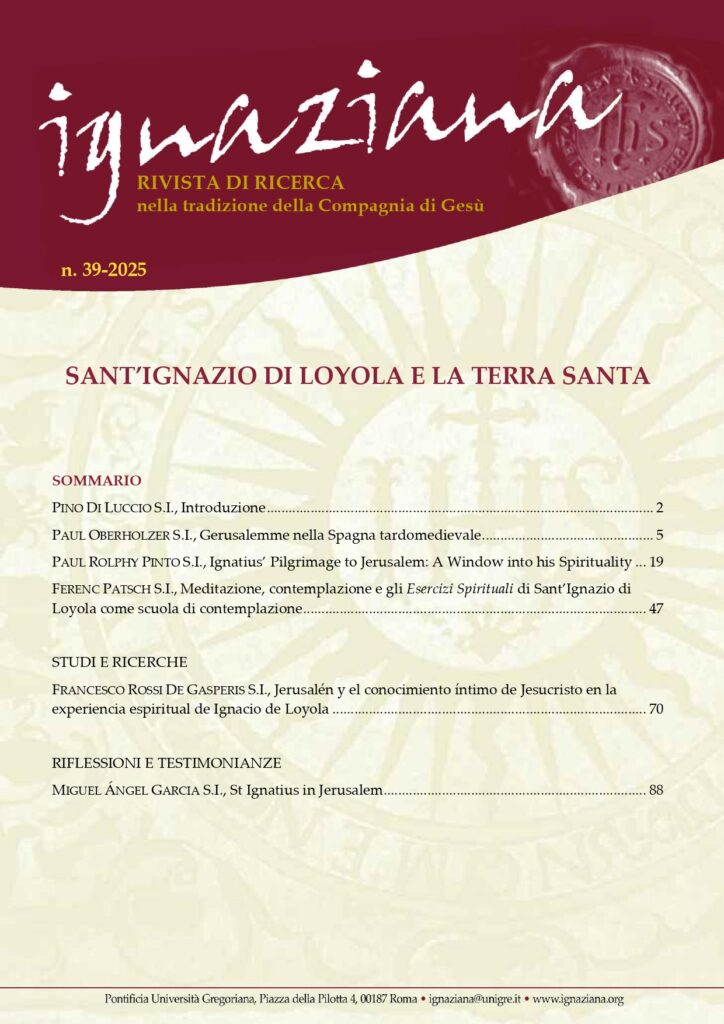
PINO DI LUCCIO S.I., Introduzione
PAUL OBERHOLZER S.I., Gerusalemme nella Spagna tardomedievale
The article analyses the historical, political and spiritual significance of the concept of “Jerusalem” in late medieval Spain and the first decades of the modern age. Through an extensive historical investigation, the author shows how the ideal of Jerusalem influenced the formation of Spanish identity, intertwining with the Reconquista, the failed Crusades, eschatological prophecies and overseas expansion. The messianic vision of universal monarchy, fuelled by figures such as Arnaldo de Villanueva and culminating in the policies of the Catholic Monarchs and Charles V, is reconstructed. The article highlights how this imagery also influenced Ignatius of Loyola, a young page at the Spanish court, and his spiritual and missionary project.
PAUL ROLPHY PINTO S.I., Ignatius’ Pilgrimage to Jerusalem: A Window into his Spirituality
The article analyses St Ignatius of Loyola’s pilgrimage to Jerusalem as a founding moment of his spirituality. Through an accurate historical reconstruction, the author shows how the journey to the Holy Land transformed Ignatius from a penitent knight to an itinerant apostle. The mystical experience lived in the holy places, combined with the maturing of spiritual discernment in Manresa, contributed to the birth of the Spiritual Exercises and the missionary vision of the Society of Jesus. The pilgrimage, initially motivated by penance and imitation of the saints, evolved into a universal apostolic project, marking the passage from an individual spirituality to an ecclesial and incarnated one.
FERENC PATSCH S.I., Meditazione, contemplazione e gli Esercizi Spirituali di Sant’Ignazio di Loyola come scuola di contemplazione
The article explores the contemplative value of the work of St Ignatius of Loyola, highlighting its relevance both in the medieval mystical tradition and in the contemporary spiritual context. The author argues that Ignatian thought represents a true “school of contemplation”, capable of integrating intellectual reflection and imaginative prayer, thus responding to the growing need for simplicity and interiority in the postmodern world. After a historical and methodological analysis, the text delves into specific practices such as the examen, contemplation to attain love and the third way of praying. Particular attention is paid to the 20th century renewal and the contribution of Jesuit Franz Jálics, whose method makes the Ignatian contemplative approach relevant today. The essay shows how St Ignatius’ spirituality can offer profound answers to the inner challenges of contemporary man, fostering a personal and transforming encounter with God.
STUDI E RICERCHE
FRANCESCO ROSSI DE GASPERIS S.I., Jerusalén y el conocimiento íntimo de Jesucristo en la experiencia espiritual de Ignacio de Loyola
The article examines the spiritual and theological significance of Jerusalem in the life of St Ignatius of Loyola. Through a historical-exegetical analysis, the author reveals how Ignatius’ desire to visit the Holy City profoundly shaped his conversion and his apostolic mission. Jerusalem is not only a geographical destination, but a symbolic space that marks the beginning of Ignatius’ spiritual journey, rooted in the contemplation of the historical and risen Christ. The unfinished pilgrimage becomes fundamental to the Spiritual Exercises and to the Jesuit vision of the Church and mission.
RIFLESSIONI E TESTIMONIANZE
MIGUEL ÁNGEL GARCIA S.I., St Ignatius in Jerusalem
This contribution is an interview that explores St Ignatius of Loyola’s pilgrimage to the Holy Land in 1523, reconstructing his journey through historical sources and contemporary testimonies. Although brief, Ignatius’ experience was spiritually profound and fundamental to his vocation. The interview details the places he visited, the challenges he faced – including the Franciscans’ refusal to let him stay – and how all this shaped his ecclesial and missionary vision. It also outlines the evolution of the relationship between Jesuits and Franciscans and emphasises the current apostolic presence of Jesuits in the Holy Land, with a strong focus on reconciliation and interreligious dialogue.
